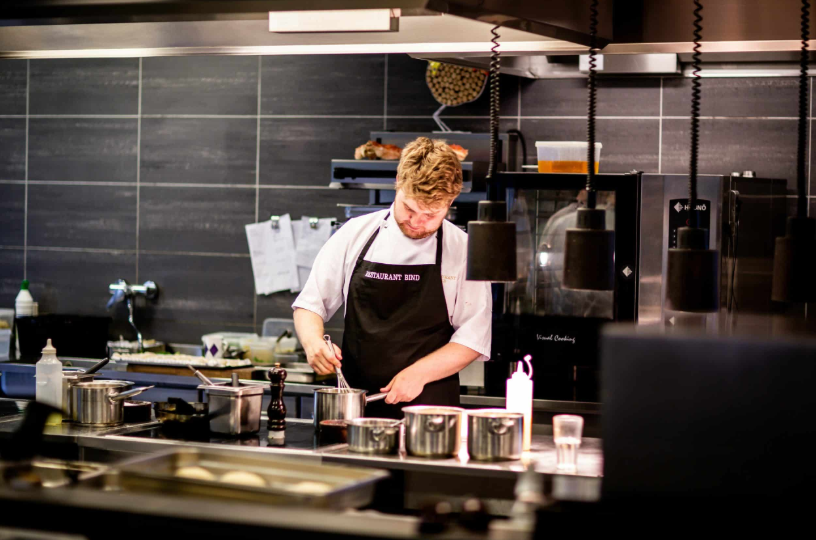In the bustling world of food startups and culinary innovation, access to a professional kitchen can make or break a business. Whether you’re an aspiring chef, a small-batch producer, or a catering business in growth mode, commercial kitchen rental is a game-changing solution. It provides the facilities and freedom to scale up without the massive costs of building a kitchen from scratch.
What is a Commercial Kitchen Rental?
A commercial kitchen rental is a shared-use or private-use kitchen space that meets local health department standards and is available for rent by the hour, day, or month. These kitchens are fully equipped with industrial-grade appliances such as ovens, mixers, deep fryers, walk-in coolers, and more, allowing food professionals to prepare, cook, and store food products efficiently.
For many small businesses, renting a commercial kitchen is more practical than owning one, especially during the early stages of operation.
Who Uses Commercial Kitchen Rentals?
The appeal of commercial kitchen rental spans across a wide range of food-based businesses:
- Caterers: Catering businesses often work off-site and need a certified kitchen to prep and cook meals before delivery.
- Food truck operators: Since most food trucks don’t have enough room to prep large batches of food, they rely on rented kitchens.
- Bakers and confectioners: Artisanal bakers or chocolatiers use rental kitchens to meet demand during peak seasons.
- Meal prep companies: These companies need clean, organized, and scalable environments to prepare bulk meals.
- Pop-up restaurant chefs: Pop-up chefs use these kitchens for pre-event food preparation.
- Product developers: Entrepreneurs creating sauces, jams, or frozen foods benefit from a hygienic and regulated space.
See also: Kids Insulated Water Bottle: A Smart Hydration Choice for Active Lifestyles
Benefits of Commercial Kitchen Rental
- Cost Efficiency
Building a kitchen involves huge capital for equipment, permits, and ongoing maintenance. Renting allows you to avoid these upfront costs. - Flexibility
Rental kitchens often offer flexible time slots—hourly, part-time, or full-day—so you only pay for what you need. - Compliance and Licensing
Most commercial kitchen facilities meet local food safety codes. This makes it easier to get health department approvals and licenses for your food business. - Shared Resources
Many commercial kitchens are part of coworking spaces for food businesses. You may gain access to shared cold storage, dry storage, and even marketing resources. - Networking Opportunities
Working alongside other food entrepreneurs can lead to collaborations, supplier referrals, or joint marketing efforts. - Scalability
As your business grows, you can book more kitchen hours or even transition to a private kitchen suite within the same facility.
Key Features to Look for in a Commercial Kitchen Rental
When evaluating a potential kitchen space, consider these essential features:
- Equipment availability: Ensure the kitchen has the tools and machinery you need.
- Storage options: Check for walk-in coolers, dry storage, and freezer access.
- Cleanliness: The space should adhere to strict hygiene protocols.
- Security: Ensure you can safely store your ingredients or finished products overnight.
- Accessibility: The location should be easy for your staff, suppliers, and delivery drivers to reach.
- Support services: Some facilities offer additional support such as business mentoring, packaging areas, or access to shipping/logistics partners.
Legal Considerations
Before signing any agreement for commercial kitchen rental, be sure to:
- Review the lease or rental contract thoroughly to understand cancellation policies, fees, and time restrictions.
- Confirm insurance requirements—most kitchens require liability insurance.
- Check licensing rules. Some states or municipalities require a business license, food handler’s permit, or additional certifications to legally operate out of a shared kitchen.
- Ask about inspections. Many commercial kitchens undergo regular health inspections. It’s good to know when and how these happen.
Finding the Right Kitchen Space
Here are some tips for finding the best commercial kitchen rental for your needs:
- Use online directories: Platforms like The Kitchen Door, CulinaryIncubator.com, and local coworking spaces often list rentable kitchens.
- Ask local food entrepreneurs: They can provide honest reviews and referrals.
- Contact local food incubators: Many cities have nonprofit or government-funded food incubators that offer affordable kitchen space to early-stage businesses.
Costs Involved
Commercial kitchen rental pricing varies depending on location, equipment, and facilities. On average, you can expect:
- Hourly rates: $15 to $50 per hour
- Monthly rental: $500 to $2,500 per month
- Storage fees: Additional fees for dry, refrigerated, or freezer storage
Some kitchens also charge cleaning or maintenance fees. It’s wise to request a full pricing breakdown before committing.
Case Study: How a Local Caterer Grew with Kitchen Rental
Let’s take the example of a Melbourne-based caterer who wanted to scale her weekend catering business. She began with minimal equipment at commercial kitchen rental but quickly ran into space and compliance issues. By switching to a commercial kitchen rental, she was able to:
- Secure her food handling license
- Prepare large orders for corporate events
- Store ingredients in a certified space
- Experiment with new recipes in a professional setting
In just six months, her customer base doubled, and she transitioned to a full-time catering career.
Final Thoughts
A commercial kitchen rental isn’t just a space—it’s an opportunity. It provides budding food entrepreneurs with the infrastructure, credibility, and efficiency needed to scale sustainably. Whether you’re launching a food truck, catering for events, or creating a new line of baked goods, renting a licensed kitchen gives your business the room—and the tools—to grow.
So, if you’re serious about taking your culinary venture to the next level, investing in a commercial kitchen rental might be the smartest move you can make.





